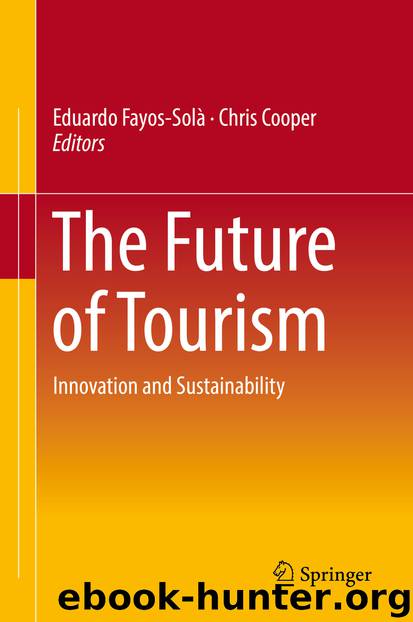The Future of Tourism by Unknown

Author:Unknown
Language: eng
Format: epub
ISBN: 9783319899411
Publisher: Springer International Publishing
One of the most comprehensive treatises on justice comes from John Rawls (1971). Rawls argued that because of accidents of birth, i.e., people are born into either wealthy or poor states; we should construct a system of justice that both protects the disadvantaged and places constraints on those who have more and who might also take more. Rawls’ difference principle suggests that societal resources ought to be allocated differently if, in doing so, this allocation benefits the disadvantaged—a system based on liberty over wealth and opportunity, and equal opportunity. Like Nozick (1974), above, Rawls discussed a system of justice that takes into consideration the needs of future generations: intergenerational justice. Liberal societies that enjoy favourable conditions are prone to over-consumption, which places later generations at risk for diminished resources. We have a duty to ensure that successor generations have sufficient resources and capital so that they may be able to maintain just institutions and societies.
Issues on rights (Nozick (1974) and justice (Rawls 1971, 1999) in tourism prompted Mihalic and Fennell (2015) to develop a demand side model for a more just economic approach in tourism based on the trading of tourism rights. The model is an example of how tourism can reach its full potential as a development force through the use of market-based instruments. Mihalic and Fennell argued for an approach based on the free allocation of tourism rights to all world citizens. The allocated quantity of travel for each world citizen does not bring forward additional expenses, unless one wishes to exceed his or her allotment or quota. Those not wishing or able to travel need to be compensated for this by those exceeding their quota. The system prices excess tourism, and compensates deprived people through compensation. Furthermore, the approach is different than past models that implemented taxes, like eco-taxes, which were widely criticised (Bianchi and Stephenson 2013). Industry pundits have consistently opposed taxes for purposes of poverty or the environment based on the argument that such will hurt business (Higgins-Desboilles 2008). It follows from Higgins-Desboilles who observed that taxation of the privileged minority who can actually use their right to travel emerges as “a very logical approach” (p. 352).
The macro social contract in Fig. 8.1, therefore, includes the theoretical ground rules for ethics; agreed upon principles to govern tourism morality; it is based on ethical triangulation or pluralism; and it is informed by the theorists noted above, including Rawls, Nozick, Heidegger, Kant, and Levinas (see also Brady 1985).
Download
This site does not store any files on its server. We only index and link to content provided by other sites. Please contact the content providers to delete copyright contents if any and email us, we'll remove relevant links or contents immediately.
Tokyo Geek's Guide: Manga, Anime, Gaming, Cosplay, Toys, Idols & More - The Ultimate Guide to Japan's Otaku Culture by Simone Gianni(1945)
Batik by Rudolf Smend(1719)
Life of Elizabeth I by Alison Weir(1571)
The Little Book of Bettie by Tori Rodriguez & Dita von Teese(1294)
Paris Undressed by Kathryn Kemp-Griffin(1220)
A Victorian Lady's Guide to Fashion and Beauty by Mimi Matthews(1115)
Pretty Iconic by Sali Hughes(1095)
How to Dress by Alexandra Fullerton(1052)
Indigo by Catherine E. McKinley(1041)
101 Things I Learned in Law School by Matthew Frederick(920)
The Language of Fashion by Barthes Roland(915)
Lazy Perfection by Jenny Patinkin(912)
The Light of the World by Elizabeth Alexander(909)
Fashion Victims by Alison Matthews David(909)
Fashion Illustration 1920-1950 by Walter T. Foster(878)
Face Paint: The Story of Makeup by Lisa Eldridge(867)
House of Versace: The Untold Story of Genius, Murder, and Survival by Ball Deborah(865)
Historical Dictionary of the Fashion Industry by Francesca Sterlacci & Joanne Arbuckle(857)
Vogue on: Dolce & Gabbana by Luke Leitch(821)
